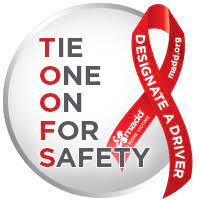Empowering Women in Relationships by Joan Merlo, LCSW, FSG Staff Therapist
As a psychotherapist for over thirty years, one of the areas of my work closest to my heart is that of partnering with female clients to facilitate their growth in self-awareness, self-understanding, and self-empathy. These are fundamental elements necessary to becoming more empowered, self-determined, and authentic in all of our relationships, yet I know well from my own life journey and my years of training and experience how easy it is for women to overlook and neglect our own essential needs by becoming over-extended in caring for others. Many of the women I work with struggle mightily to balance the demands of their myriad and competing roles, such as busy “supermom,” loving partner/spouse or single mother, devoted daughter to aging parents, supportive friend, and collaborative colleague at work, to name a few. My clients come to therapy often feeling exhausted, overwhelmed, burned out, and guilty, sensing that in spite of all they do, something is missing. It is often both surprising and healing for them to begin to understand that what is missing is not that they haven’t done enough for others but rather they have forgotten to nurture and prioritize their most important relationship: the one with themselves! To begin to address this, they need to learn to first center in their own body, mind, and spirit as the foundation for being able to mindfully care for anyone else. It takes awareness, insight, intentionality, and empathic support to confront one’s part in participating in dysfunctional patterns of relating, to make the decision to change, and to develop the courage and sense of agency to follow through.
The following are some steps to help begin that process:
- Schedule yourself to take several 15 or 20 minute breaks every day to do some deep breathing and self-reflection, centering mindfully in your thoughts and feelings.
- Take your needs and personal goals seriously and make them a priority. Journal about them and/or discuss them with someone you trust as steps toward finding your “voice” and communicating more effectively.
- Pay attention to your feelings of stress, anxiety, and depression as messages, not that you are deficient, but that you need to attend to something which affects your well-being.
- Be aware of and take care of your physical needs, such as eating well, exercising, and getting enough sleep.
- Learn and practice the fine art of saying ”No” or “Let me think about that and get back to you” before committing your precious time and energy to requests for your help.
- Learn to delegate and share in tasks at home and work, rather than over-functioning, asserting that only you can do things perfectly.
- Identify life-giving and empowering relationships and activities, including therapy (if needed), and choose to spend time in ways which lift you up and support you.


